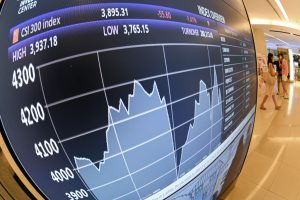Elena Tedesco, Portfolio Manager and Joanna Frontczak, Analyst at Vontobel Asset Management
While the E in ESG has taken prominence in impact investing over the past years, the S has only recently been coming to the fore shining a light on social factors such as poverty, health care, education and inequality. However, for many, social factors are still a philanthropic luxury rather than an actionable investment focus. However, the economics of biodiversity could trigger a rethinking on the way we act and measure economic success and how they are crucial to achieving some of the most important social impact goals.
Lack of net-zero equivalent is a drag on social agenda
Part of the issue that the S has taken a backseat to the ESG agenda so far, is a lack of systematic regulatory zeal, taxes and incentives on social matters that would be comparable to the commitment environmental issues have received. There is no net-zero equivalent on the social front as of today. For example, there is no carbon tax equivalent that punishes the companies that lack adequate female representation at top management level despite the cost lower productivity less diverse teams incur. At the same time, some social factors have grabbed the attention of companies around the world more than others as companies strive to brush up on their public image. For example, an increasing number of companies make an effort to demonstrate how they are contributing to society by way of good HR practices, gender equality and good working conditions. Then, there are factors that have always been top of mind in some sectors such as employees’ safety in the construction sector for instance. Aside from the demand-driven corporate actions on social issues that are already under way, regulatory scrutiny is likely to spill over from environmental issues to the social realm.
How to make it count
Positive social outcomes are more difficult to grasp and measure than environmental ones. Meaningful social impact investing generates positive change in society, such as improved food chains, broader access to health care systems and increased financial inclusion. The UN Sustainable Development Goals (SDGs) provide a helpful framework for setting investment goals and measuring investment outcomes. These goals help to derive impact areas which can be used to inform investor portfolios by systematically selecting companies that contribute tangibly to solving issues. SDGs should be translated into impact areas that are tied to concrete key performance indicators (KPIs) against which companies can be evaluated for portfolio inclusion. Only companies that generate most of their revenues via products and services that represent real solutions or that contribute to the specified goal should be eligible for inclusion in impact funds to ensure high impact potential of the portfolio.
Biodiversity takes center stage on core social issues
Biodiversity in particular is set to receive more attention fast since, according to the United Nations, current erosion biodiversity and ecosystems are undermining progress towards 80% of SDG targets related to water, poverty, land, marine life, health and poverty. Studies have found that reducing biodiversity loss acts as a powerful multiplier across the entire SGD agenda taking into account benefits across goals and adverse trade-offs. For example, conservation and sustainable use of land helps to combat hunger, nutrition inequality, food security as well as so called “hidden hunger” caused by malnutrition on a global scale (SDG 2). Furthermore, healthy ecosystems serve as a base for the livelihood of rural populations and play a crucial role in ending poverty (SDG 1). Finally, restoration of biodiversity can help increase equality within and among different countries by stemming resource depletion by aggressive agricultural practices and maintaining jobs outside of urban centers (SDG 10). And the list goes on.
A company example is Netherland-based DSM active in the areas of sustainable food ingredients as well as human and animal health and nutrition care. To improve its operational footprint DSM monitors areas of high biodiversity value around its sites (27% of all production sites are adjacent to protected areas) and responsibly sources high-risk raw materials such as palm oil derivatives, wood-based materials, fish oils and sugar through recognized certification schemes. Looking at its products, DSM produces Veramaris® a natural algal oil used as feedstock. One ton saves 60 tons of wild fish from having to be caught to produce salmon feed, protecting marine biodiversity in the oceans and rivers. It has also developed nutritional solutions for animals which address environmental risks indirectly affecting biodiversity: Bovaer® reduces methane emissions from ruminants by at least 30%. VevoVitall® reduces ammonia emissions by up to 18% in swine, and protease feed enzymes like ProAct improve protein feed utilization in poultry and subsequently reduces their nitrogen emissions to the environment.
While data on biodiversity is still patchy at this moment in time, we are likely to see more international corporations wanting to improve their footprint in this area as well as more data tracking for the purpose of complying with increased transparency and enhanced disclosure rules that are likely to be imposed by regulators in the future. Regulatory scrutiny is likely to hit other socially relevant factors soon which harbors attractive impact and return potential to investors who are willing to commit their capital to companies driving innovation and change in the social realm.
*The views expressed on Industry Announcements are not necessarily the views of
Asia Financial.
*To contribute press releases, research or commentaries, please send an email to
[email protected]
























